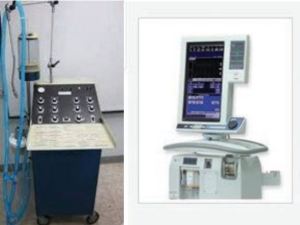By Deborah Bailey AFRO Contributing Editor dbailey@afro.com
Millions of Americans will no longer have the liability of medical debt listed on their credit reports, thanks to a new ruling issued by the Consumer Financial Protection Bureau (CFPB).

On Jan. 7, the CFPB finalized a rule removing an estimated $49 billion in medical bills from the consumer credit reports of 15 million Americans. The CFPB’s action will also prevent banks from using medical information in their lending decisions and prevent debt collectors from intimidating medical bill payers with the threat of health-related debts being listed on their credit reports.
The CFPB rule was announced by Vice President Kamala Harris Jan. 7 from the White House. It will be effective 60 days after publication in the Federal Register.
“This will be life-changing for millions of families, making it easier for them to be approved for a car loan, a home loan or a small business loan,” she said. “As someone who has spent my entire career fighting to protect consumers and lower medical bills, I know that our historic rule will help more Americans save money, build wealth, and thrive.”
CFPB’s research in advance of the announcement of the rule revealed that medical debt reported on a credit report does not predict a person’s capacity to repay loans and was a factor in thousands of denied mortgage applications. The government agency predicts the rule will lead to an increase of 20 points in the average credit score and 22,000 additional approved mortgages each year.
“We are extremely grateful for the announcement of this new federal rule,” said Dr. Virginia Caine, president of the National Medical Association and director and chief medical officer of the Marion County Public Health Department in Indianapolis, Indiana.
In an exclusive interview with the AFRO, Caine emphasized the devastating toll medical debt exacts on the Black community.
“Black Americans carry more medical debt than any other ethnic/racial group,” said Caine, quoting from National Institutes of Health data.
That heavy burden of medical debt creates crisis in the lives of many Black families, affecting issues such as housing and employment and their mental and emotional well-being. Caine also indicated negative medical credit has played an inordinate role for Black women in deciding about medical treatment.
“More than 31 percent of Black women refuse or delay medical services over accruing medical debt,” said the infectious diseases specialist who has witnessed the burden of medical debt on the lives of patients in her health practice.
“There is a higher burden for people of color. I have spent a lot of time with my own patients helping them review their medical bills. It’s tough even for a healthcare provider to understand those medical bills. Moreover, health care bills frequently contain mistakes that take weeks, months or more to remove from your credit report,” she added.
The Kaiser Family Foundation reports that low-wealth Americans, persons living with disabilities or who are in poor health and the uninsured are more likely to carry medical debt as well.
Dr. Beverlyn Settles-Reaves has experience with mounting medical bills both as a patient and care manager for Howard University’s Urban Health Initiative, Department of Community and Family Medicine.
Settles-Reaves was diagnosed with Crohn’s disease as an adolescent and is a life-long patient of the chronic condition. In the early years of her health journey, Settles-Reaves said many of the treatments she needed for her disease were not covered by insurance.
“I carried the burden of medical debt on my own credit record for many years,” she said, “so I understand the financial stigma and additional stress patients experience when medical debts are part of their credit profile.”
Settles-Reaves now works with patients at Howard University’s Urban Health Initiative and oversees patient care management for substance abuse patients and those living with other health issues. She welcomes the news that medical debt will be eliminated from credit reports as she reflects on both her own experience as well as the experience of her patients.
“No one plans to be sick. No one plans to be in the hospital,” Settles-Reaves said, as she agreed with the CFPB’s research distinguishing medical debt from other types of liabilities.
“Medical debts are not anything a person voluntarily incurs. The more we can do to support patients with the other essential determinants of health when they are already living with the stress of an illness, the better,” she said.
The post Federal government issues new rule eliminating medical debt on credit reports appeared first on AFRO American Newspapers.











